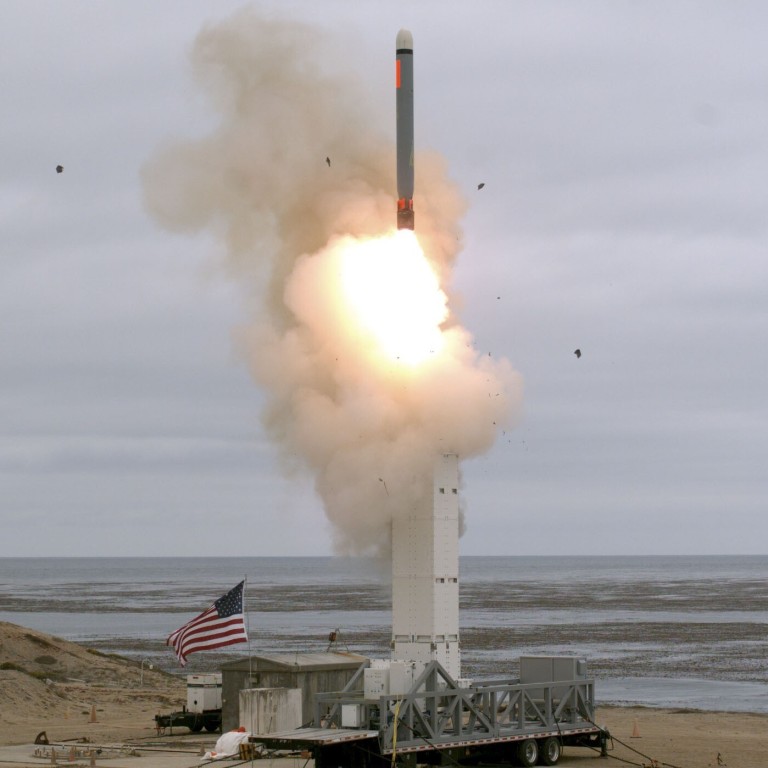
China urges Japan to just say no to hosting American missiles
- Beijing issues stern response to reports Washington is planning to position intermediate-range missiles in Asian countries
- ‘Don’t fall victim to a US geopolitical plot,’ defence ministry spokesman says
Beijing said on Wednesday it would not sit idly by if the US sought to deploy such missiles on its doorstep, but rather would take “all necessary countermeasures”.
“In the meantime, China hopes Japan and other countries can take regional peace and stability into consideration, act prudently and say no to the US – which wants to deploy intermediate-range missiles on their land – so they don’t fall victim to a US geopolitical plot in the region,” defence ministry spokesman Wu Qian told a press conference.
In a separate press briefing, China’s foreign ministry urged Japan to maintain its “exclusively defence-oriented” policy as laid out in its constitution.
“Because of historical reasons, Japan’s military security trends have always received the attention of the international community and its Asian neighbours. We urge Japan to earnestly learn the lessons of history,” ministry spokesman Zhao Lijian said. Tokyo should “continue to follow the path of peaceful development with concrete actions”, he said
Relations between China and Japan would collapse if such missiles were deployed on Japanese soil
Beijing’s comments came in response to reports the US is considering deploying intermediate-range missiles in Asia after withdrawing from the Intermediate Range Nuclear Forces Treaty in August.
Under the Cold War-era arms control pact, signatories agree not to “possess, produce or flight-test” ground-launched cruise missiles that have a range of 500-5,500km (310-3,400 miles).
Intermediate-range missiles are considered highly dangerous because of their short flight duration – which makes them hard to detect and defend against – and their ability to carry multiple nuclear warheads.
Lian Degui, an expert on Japanese affairs at Shanghai International Studies University, said Beijing would not tolerate weapons like the intermediate-range missile being positioned so close to its territory.
“This is explicitly aimed at China and can be seen as the US preparing for a military confrontation in the future,” he said.
“Relations between China and Japan would collapse if such missiles were deployed on Japanese soil.”
US successfully tests hypersonic missile in bid to catch up with China and Russia
Besides positioning weapons of its own to counter the missile threat, Beijing might also introduce punitive measures against Japan to hit its economy, he said.

